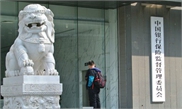
Online loan Illustration: VCG
Pop-up ads that appear in many mobile apps promoting internet loan products are "out of control" and increasingly raising debt and privacy concerns among consumers and experts, with some predicting that it could be the next sector to face stricter regulation amid China's growing efforts to rein in problematic practices in the internet industry.
Since the beginning of the year, Chinese netizens have been complaining with increasing intensity about pop-up ads and promotions appearing in apps promoting internet loans on China's Twitter-like Weibo.
Such pop-ups will surely become regulators' next target, Zhang Yi, CEO of iiMedia Research Institute, told the Global Times on Sunday, adding that misleading users -especially young ones-to borrow too much online and violating users' privacy are the two major issues.
Chinese authorities have already rolled out policies and regulations to crack down on problematic internet loans, aiming to better regulate the promotion and distribution of internet loans among college students and enhance the supervision of banks' internet loans.
The penetration rate of credit products is 86.6 percent among Chinese consumers aged 18 to 29, and 44.5 percent of people that age group have debts, according to a research note from Nielsen Report.
"Chinese regulators have been careful about loan products that could burden the young population with too much debt at too young an age. The main users of such popular apps such as food delivery apps are young consumers, so things can go wrong as a result of campus loan scams," according to Zhang,
Zhang noted that leaks of personal data are also a serious problem, as internet loan businesses normally make money by reselling consumers' personal information, and consumers' user experiences are also affected by such distracting and misleading advertisements.
"Every time Didi Chuxing reminds me to get a coupon, I always end up on the loan application page," a Weibo user said. Didi Chuxing is a car-hailing platform backed by Alibaba.
Meituan, a leading food delivery platform business, was also called out by netizens for bundling coupons with loan products. A user said that when she wanted to use a coupon for her order, she was asked to fill in her bank account information and sign an agreement with a loan product in order to claim a 6-yuan ($0.92) coupon.
"If a student claims the coupon and provides the bank information, would the student just be bound to the loan product automatically?" the user said.
"The online promotion and advertisement distribution of internet loans has gotten out of control," Dong Dengxin, director of the Financial Securities Institute at Wuhan University of Science and Technology, told the Global Times on Sunday.
Many apps that distribute ads or use pop-ups to promote internet loan products are not even financial apps or loan apps themselves. Thus, it is necessary to strengthen the regulation of these apps from the standardized perspective of both the advertising industry and the loan industry, Dong added.



